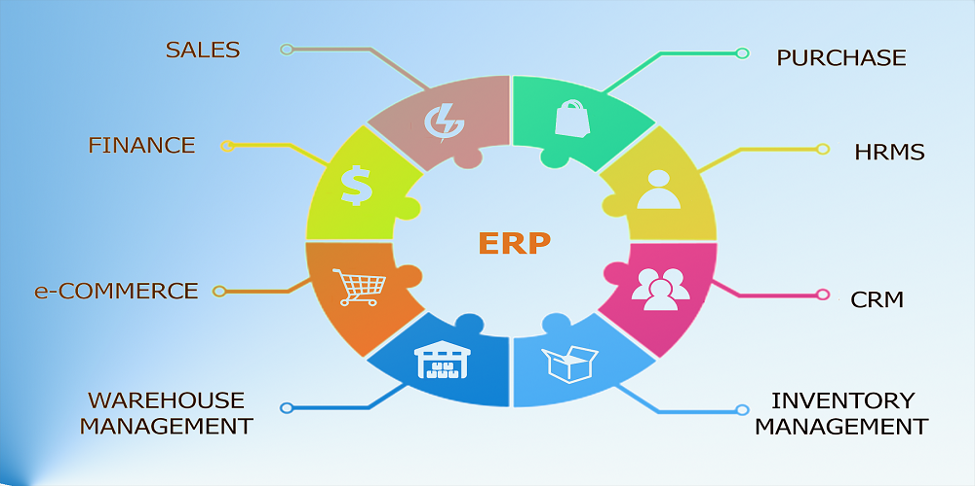Enterprise resource planning, popularly known as ERP, has gained massive popularity over the recent past as an integrated approach to managing business processes. Mauergauz defines ERP as:
“A process management software that allows an organization to use a system of integrated applications to manage its business and automate back-office functions related to technology, services, and human resources.”
It creates a centralized system where the management can monitor events in various departments and operational activities such as sales, purchases, human resource management, finance, e-commerce, customer relations, inventory management, and warehousing, as shown in figure 1 below. It works by integrating all aspects of a firm’s operation in all departments into a single database then creates a user interface where authorized individuals can access data in real-time.
One of the main advantages of ERP is that it centralizes data so that authorized officers can access them in real-time. It eliminates the wastage of time as the movement of workers is limited because of centralized data. The management can also monitor the progress that each department is making in real-time. In case a weakness is identified, immediate corrective measures can be taken to avoid wastage of resources. The main challenge of ERP is that it requires substantial financial investment to install the database and interfaces. It also requires experts to be in charge of operations.

The primary role of ERP is to integrate data from all departments within an organization to facilitate the effective sharing of information and enhance decision-making processes. Activities of all departments within an organization are made available in a centralized database in real-time. The coordination of data makes it easy to coordinate activities within the firm. The top management unit can easily contact departmental heads and direct them accordingly based on the information that is made available to them. Systems integration also enhances decision-making processes. As Gronwald observes, ERP makes it possible for managers to make decisions based on actual data instead of estimations.
Enterprise resource planning also helps in enhancing operations management within the company. According to Nogués and Valladares, information is a critical tool in the modern business environment as it defines decisions that a firm makes. However, such intelligence can only be meaningful if it is provided at the right time and made available to the right people. ERP facilitates such immediate sharing of information. The marketing unit is able to provide information to the production department about the estimated amount of products needed in the market within a given period. The same information will be relayed to the finance department for purposes of developing a budget, procurement department to purchase the needed raw materials, and transport unit to facilitate movements of materials and finished products.
